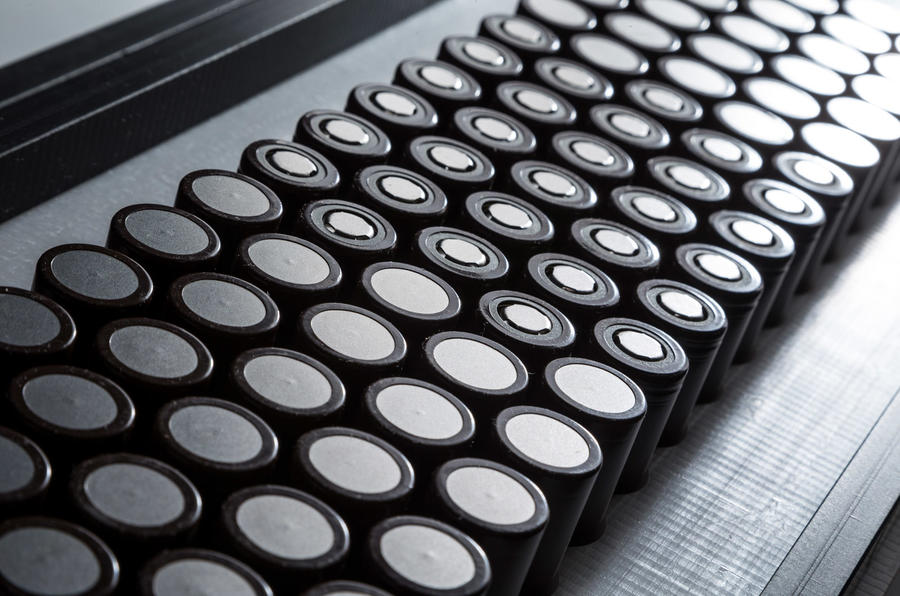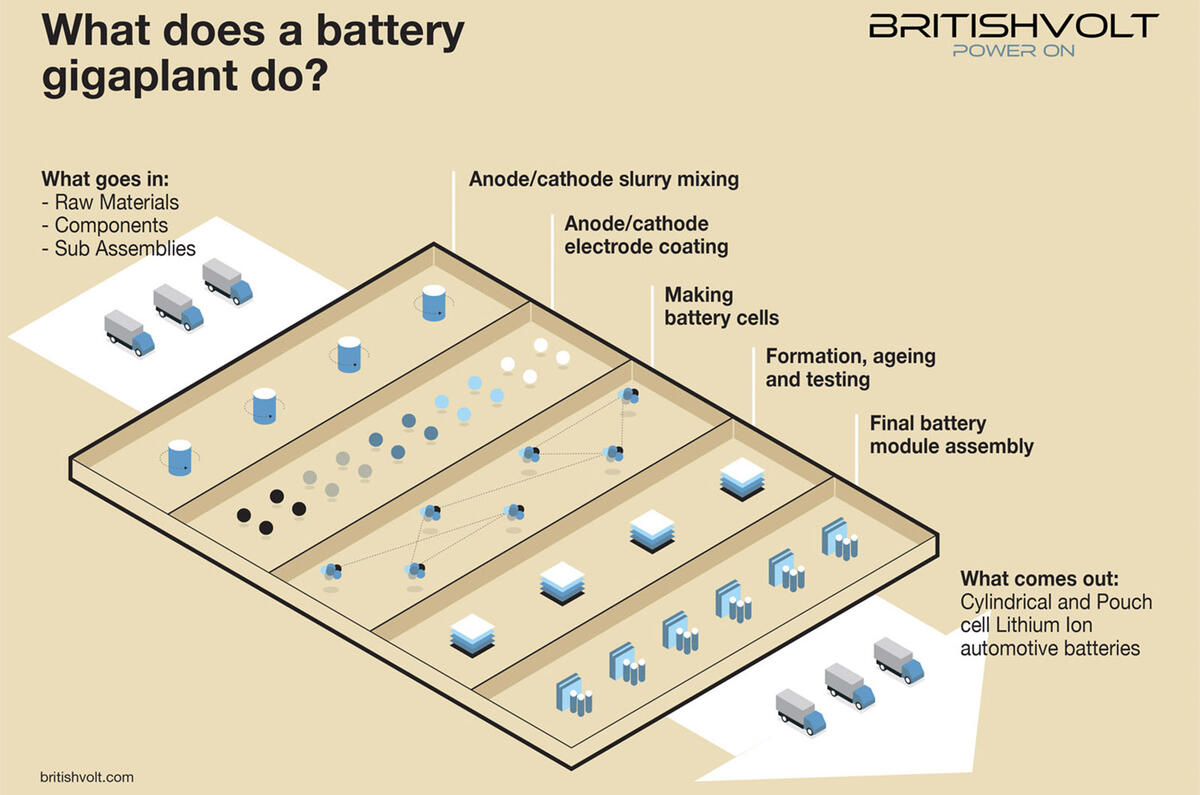British car makers are already in talks with new start-up Britishvolt to source EV batteries from its UK gigafactory, which is planned to open in 2023.
The company, which was founded only late last year, said confidence from the industry in its plans has grown following its commitment to a site in South Wales, including obtaining the relevant planning permissions.
Britishvolt chairman Lars Carlstrom said: “Car manufacturers understand the importance of batteries that are locally produced. It has taken some time to bring confidence. People need to see we’re investing money and are intending to do this, that it’s not just something we say we’re going to do.
“Now we’re deploying a workforce to build the factory and getting planning permissions, we’ve seen greater interest. We’re now in talks with a number of British makers. We’re also talking with some of them about developing [bespoke] batteries to fit their products, as part of their development team.”
The upcoming gigafactory, billed to be the UK’s first, is a 2.7-million-square-feet site at a former RAF base in Bro Tathan, Wales – closely situated to Aston Martin’s new St Athan factory, home of the DBX SUV and its future electrified cars. It’s planned to open with an annual output of 10GWh – enough for 130,000 EVs – and hit 30GWh by 2027, eventually creating up to 4000 jobs.
So far, all investment has come from Britishvolt itself, although it’s relying on government support as well.
“Full planning permission is out of our pockets,” Carlstrom said. “We’ve had no support or funding so far. We’re quite sure we will have funding from the UK government up to a certain extent; we need to negotiate how much, of course.”
Britishvolt’s 10GWh factory is expected to cost £1.2 billion, with another £1.4bn required to reach its full 30GWh capacity. A gigafactory has long been seen as vital for the survival of Britain’s automotive industry. Last year, Jaguar Land Rover’s outgoing CEO, Ralf Speth, said: “If batteries go out of the UK, then automotive production will go out of the UK.”
More recently, Mike Hawes, the head of the Society of Motor Manufacturers and Traders, said during an Autocar Business Live online interview: “The key thing we need is a battery plant. Without that, we’re going to be in trouble.”
The government has also voiced its support. So far, it has invested £128m in battery-related development including the UK Battery Industrialisation Centre, saying it would “provide a stepping stone for our ambition for a gigafactory in the UK”.















Join the debate
Add your comment
So many new projects coming out of Wales............
So many new projects coming out of Wales........ Aston........TVR (Delayed & no sign of Job 1 or even a factory)........Ineos Grenadier (Cancelled & shipped off to France)..........& now the Welsh Government giving Billions to an unknown start up. They should have given the money to JLR to build a new EV factory on the old Jaguar engine plant at Bridgend (sorry, the Ford plant) & bring all the i-pace production from Austria back to the UK!
Also all this tosh about Brexit too!!! We all know in the event of a "no-deal" Brexit tariffs of 10% will be slapped on British made products. But if there's no deal the Pound will plummet in value to probably by as much or even more than 10% making British products as cheap as Turkish (Ford Transits) or Polish made cars. Ford & the rest won't be able to make a profit on selling their highly expensive German made cars in their number one market, the UK & will have to import them from even cheaper locations like Romania & even India.
Cannot be worse than the current EU gravy train
In which case various companies better continue to build in the UK, maybe Ford will come back since deciding they could move car building jobs from the UK to the easten Europe and import them tariff free. Big thanks for that one EU
Cant wait to see how this
Cant wait to see how this factory compares to the Tesla Gigafactory in terms of quality, quantity and the cell technology
Proposed Giga factory in UK
Warwickshire or West Midlands would be better connected to motor vehicle manufacturing, Aston Martin and TVR will never be heavy users of EV tech. Perhaps Wales will be ready to contribute to the UK's forth Giga factory!